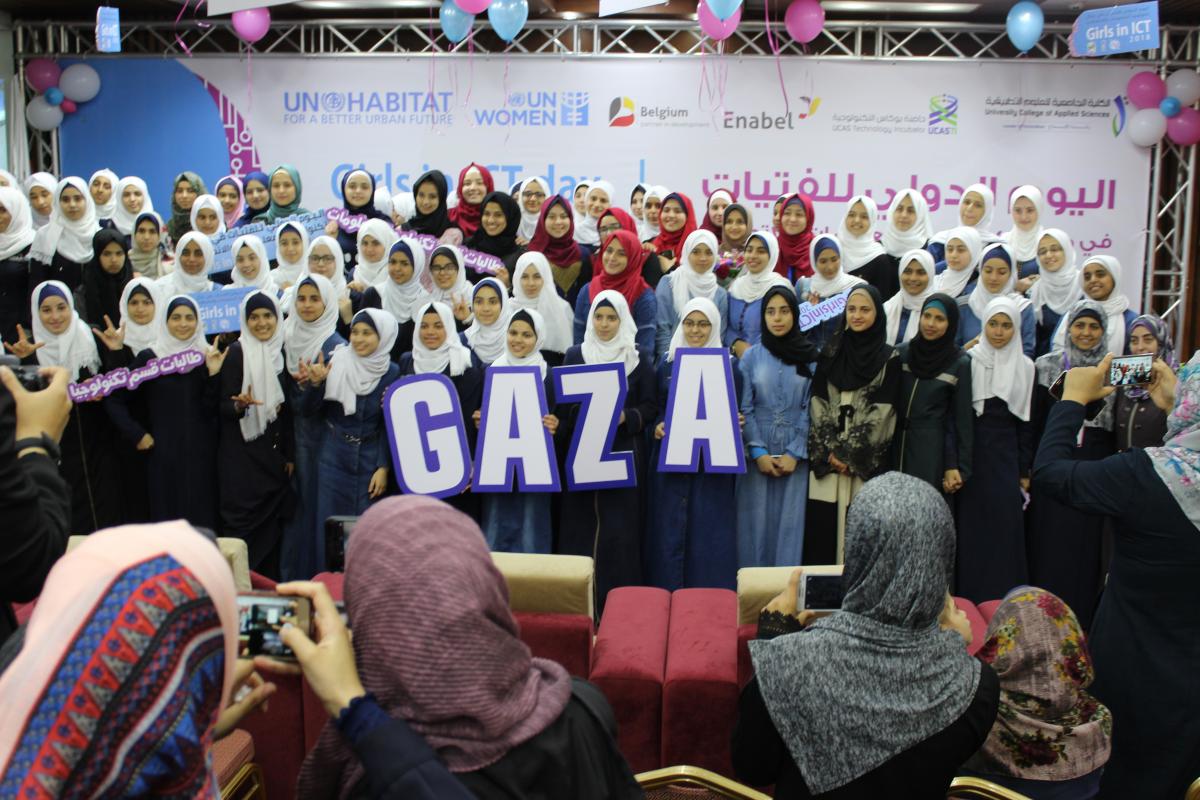Search
Viewing 1980 to 1995 of 2520 news
-
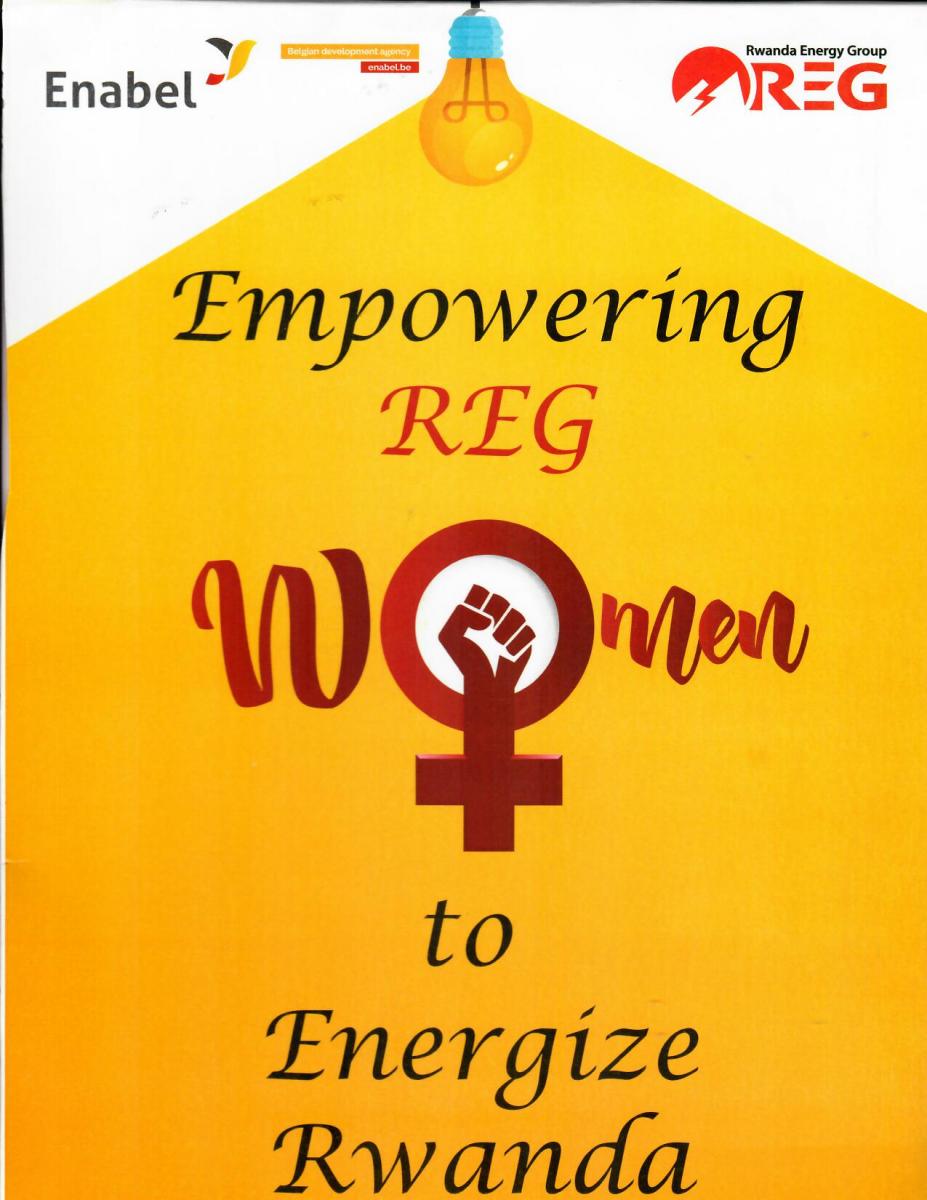
Empowering Women to Energize Rwanda
Ellen VAN HIMBERGEN | 07/05/2018
On March 23, the launching of the Rwanda Energy Group’s (REG) Gender Mainstreaming Program took place through the important workshop « Empowering REG Women to Energize Rwanda ». All women of REG, nationwide and from all different levels within the organization, have been invited to the workshop to meet each other, discuss gender issues in REG, give voice to their ideas and suggestions on what issues they face and what actions they recommend to accomplish change. The launching of the REG Gender Mainstreaming Program is the first important step in the journey towards advancing gender equality and equity in REG – to ensuring women’s full participation in the success of REG and the development of Rwanda. Due to historical, cultural, social and educational reasons, REG, just as many other organizations in the energy sector, have low participant rates of women on their staff. With this program, REG aims not only to develop the capability of present men and women, but also to actively attract and recruit more women into the organization at all levels and in all categories of jobs. Today, REG women make up approximately 18% of the total staff and very few women are in decision making roles. As a first goal, REG hopes to reach the Government of Rwanda’s target and have 30% women in all levels in the organization in the next three years. After this workshop, the next step is a first meeting with the REG’s gender focal points and the Advisory Committee Members elected during the workshop to review the proceedings of the meeting and to decide on the way forward, to then prepare the presentation to the senior management of REG. Reactions of participants: “This is the first time for me to meet colleagues from other provinces in Rwanda. We don’t know each other, but still we find out we face the same challenges.” “I really encourage the development of a policy on gender equality and equity. I hope it will also include a strategy of retaining women in the organization, which will better enable the appointment of women in management positions aswell.” Enabel in Rwanda funds two interventions in partnership with REG: the three Belgian contributions to the Electricity Access Roll-Out Programme (BE-EARP) and Institutional Strengthening and Capacity Development (CDEU). At Enabel we recognize the importance of developing and harnessing the capability of all people to increase the performance not just of organizations, but also as a key contributor to the development of the country. That is why at Enabel we include Gender as a component in all interventions.
-
Kigali hospital network
Ellen VAN HIMBERGEN | 07/05/2018
The Ubuzima Burambye (Long Healthy Life) Program is supported by Enabel and implemented under management of Rwanda's Ministry of Health (MoH) in partnership with Rwanda Biomedical Center (RBC) and the City of Kigali (CoK). This program officially started in July 2015 and its implementation phase is scheduled to last 48 months. The general objective of this intervention is to "strengthen the quality of primary health care and health services in Rwanda". To properly manage the complexity of health issues in the City of Kigali (CoK), intensified by the rapid population growth with fast urbanization, several strategies have been proposed. One of them, supported by UBUZIMA BURAMBYE (UB), is related to the development of a hospital network for the CoK in order to produce efficient, organized, rationalized and integrated health offer in an urban context. Integration of resources (human, logistics, etc.), better articulation between all actors, sharing harmonized health information, improving reference system, merging technically complex services can considerably improve health services efficacy, continuity of care, and reduce the costs and fragmentation with better efficiency. In line with the national health policy, Kigali Hospital Network is mandated to “Promote complimentary between hospitals in their common production of qualitative, continuous and accessible and integrated healthcare to face the rapid evolution of the needs of the citizens in the city of Kigali who are increasing rapidly and face profound demographic and epidemiologic changes” The development of the network concerns 11 Hospitals in CoK: 3 National referral hospitals, 3 public District Hospitals and 4 Private hospitals. The main strategic interventions that are currently supported by UB include: Optimization of specialized and quality services delivery through regular exchange of experience/expertise, skills and information. In 2018, this includes 16 modules elaborated by specialists to be shared at district hospital level for medical staff; Define the vision, strategies, mechanisms and the resources needed towards a sustainable Hospital Information Network program by digitalization. The draft strategy hereto is to be validated; Improve the information sharing between hospitals in the city of Kigali through a web-based dashboard for the 11 health facilities. At this moment, the development of a plan to share real time information to improve the referral system (availability of beds, ambulance, specific medical specialities, specific diagnostic equipment, etc.) is ongoing;Develop a tele-medicine system initially directed to tele diagnostic: this year, a "Picture Archiving and Communication System" (PACS) will be procured. In a second phase, the set-up of a harmonized electronic patient file between network member facilities to keep a continuum of care and consistency in service delivery will be developed.
-
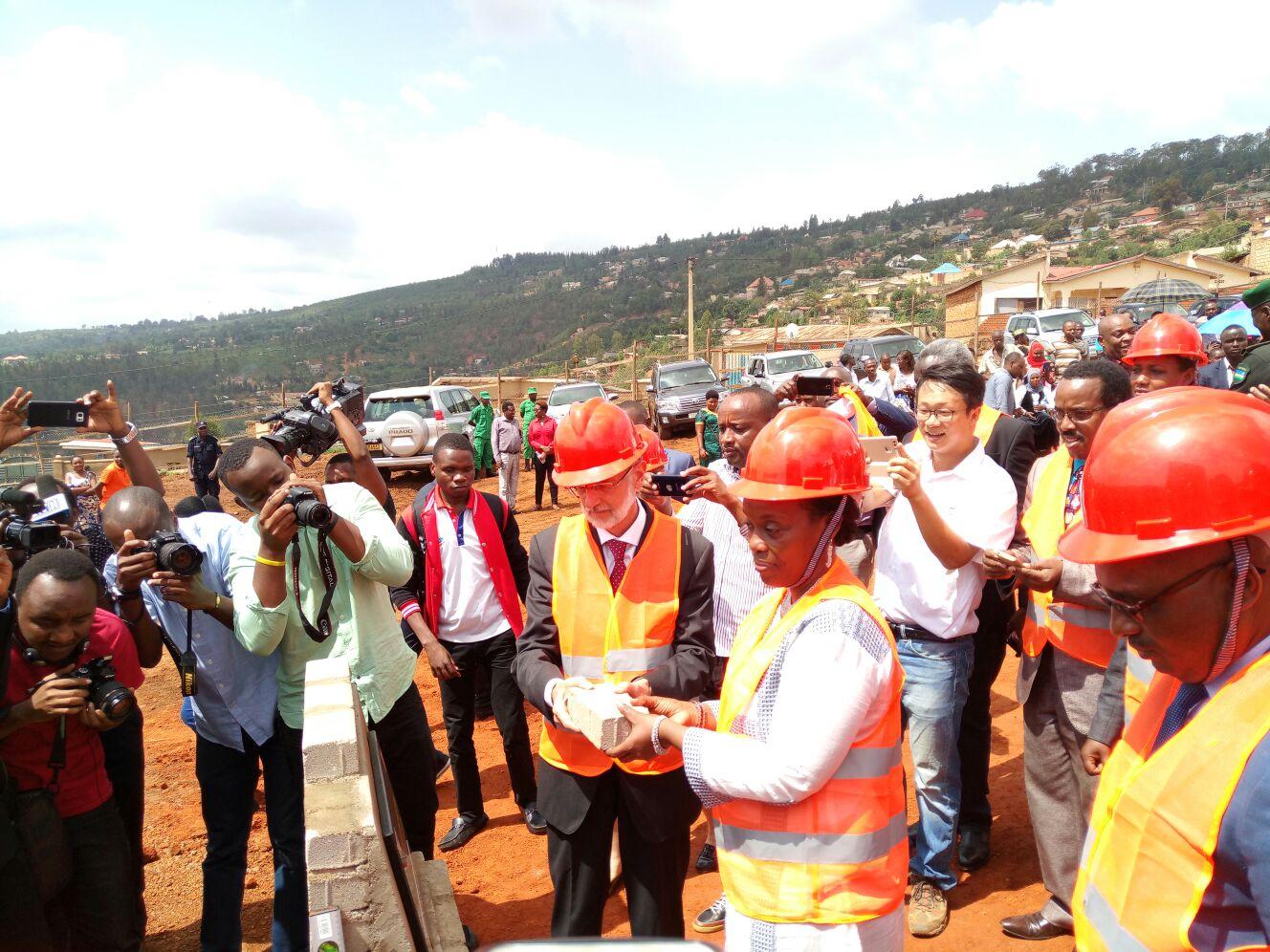
Nyarugenge District hospital: ceremony of first stone laying
Ellen VAN HIMBERGEN | 07/05/2018
On the 9th February 2018, the first stone of the Nyarugenge District Hospital was laid by Hon. Minister of Health, Dr. Diane Gashumba and by His Excellence Belgian Ambassador Benoit Ryelandt with the presence of The Mayor of Kigali and the Mayor of Nyarugenge. In relation with the decentralization policy, the Nyarugenge District Hospital is the largest infrastructure project to be managed by the district, funded by the Kingdom of Belgium and the Government of Rwanda. The project is co-managed by Enabel’s Ubuzima Burambye program and benefits from technical support from Rwanda Biomedical Center and the Ministry of Health. The hospital responds to a high demand for more than 300,000 Nyarugenge residents. It is expected to become a model of excellence and innovation in terms of organization, patient flowing, high standards of care, healthy working conditions, respect for environment, sound waste management, energy saving, isolation and network connection. The construction will take place in 2 phases: the first one will provide a fully equipped and functional 120-bed hospital by July 2019, including outpatient, inpatient, emergency and supportive services and utility buildings. The phase 2 will increase the capacity up to 300 beds to better cover needs of district population.
-
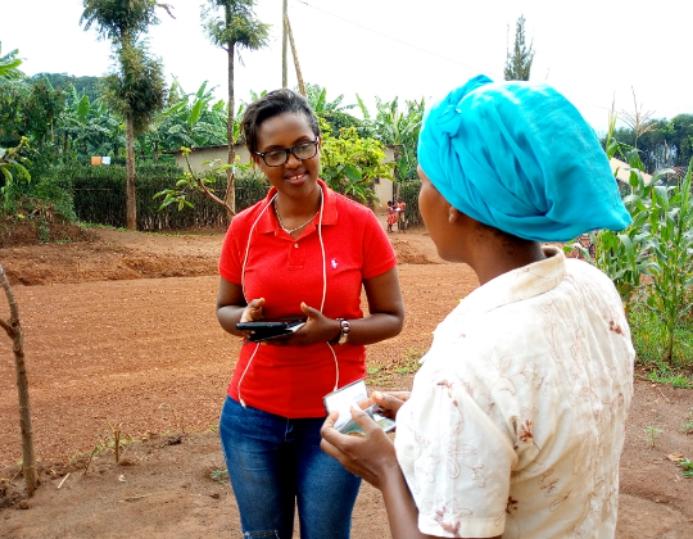
The use of digital technologies for sound decision making
Ellen VAN HIMBERGEN | 07/05/2018
Enabel optimizes its own internal processes and systems using the latest technologies in communication, management and results monitoring. We support out partners to build knowledge-driven institutions through the development of ‘open data’ strategies underpinned by the use and analysis of big data. This ranges from data of telecommunications operators to the provision of geographical information collected by interventions. Example from Rwanda: Mobile data collection for the BE1-EARP intervention’s baseline The Belgian contribution to the Electricity Access Roll-Out Programme (BE1-EARP) aims to improve the access to reliable on-grid electricity services in rural areas in Rwamagana, Ngoma and Kirehe districts. The main activity to achieve this is the electricity grid extension in specific lots in these districts with the construction of new transmission and distributing lines connected to the national electricity network. The existing houses, public institutions and businesses in the intervention area are then connected to this grid.In the end of 2017, the construction works in Rwamagana were completed. Parallel with the final stage of the works in December, the intervention conducted a survey amongst a large sample of beneficiaries. Out of apx. 8000 new connections, a sample of 954 households and 152 non-households (non-residential customers such as small businesses and churches, and to a smaller extent also schools, health centers and cell offices) were interviewed using Kobo Toolbox, an open source mobile data collection tool. Increased data quality through mobile data collection The survey is conducted by use of a mobile data collection tool, Kobo Toolbox. After a one-day training and a pilot survey, a team of 7 data collectors visited all respondents for face-to-face interviews and presented them a set of questions. Answers were registered on tablets, containing the pre-programmed surveys with apx. 50-70 questions (taking into account different scenarios in the course of the survey). A great advantage of Kobo Toolbox is that it can be used offline, as all the interviews took place in remote areas.However, the improved data quality is the most important advantage. The data collectors upload the completed surveys every evening to the Kobo platform, which then automatically generates a database of collected data. This allows real-time monitoring and easy data analysis. The skip patterns and validation functions (build-in limitations for data entry) inside the tool ensure both the logic of the survey and of the answer to each question. Working with digital tools also avoids the risk of post-survey data entry mistakes, which is often the case with paper based surveys. Through the survey, data were collected regarding the current energy consumption of households and non-households, and their intentions and expectations regarding the future (after connection to the on-grid electricity). The obtained data allow the intervention to better understand the potential results on outcome level as well as they point out challenges to be considered. 53% of the sampled households responded using torchlights to brighten their houses (possibly in combination with other traditional sources), while others are found using candles and off-grid solar lamps as lighting solutions. 97.8% of households and 99.3% of non-households expressed their willingness to connect to the grid. People not only expect to better their lives with improved lighting solutions, they also foresee positive changes in the community as electricity opens up new economic opportunities, improve health facilities and delivery of public services. However, the biggest challenge is the cost of electricity and its affordability for the households. The current energy related expenditures of sampled households are found to be on average a monthly 1905 RwF. With this amount, households will not be able to consume more electricity than what is required for basic lighting and mobile phone battery charging. The looming question is thus will the cost of electricity risks prohibit certain section of household to reap the benefits of electricity despite being connected to the grid? Are the benefits for the population sufficient to justify an investment equivalent to apx. 300 months of electricity consumption for the average household? A similar baseline survey will take place in Ngoma and Kirehe during the next months. In a second phase, there will be a follow-up survey amongst the same sample of beneficiaries in all 3 districts. The follow-up survey is planned to take place minimum 1 year after the baseline survey and will serve to get better insight in whether and to what extent beneficiaries make use of electricity, the reasons why they potentially don’t and whether or not access to on-grid electricity has resulted into (direct or indirect) socio-economic results, and thereby provides data for the intervention to measure results on outcome level.
-
International Girls in ICT Day
Laura SCHILLEMANS | 03/05/2018
Information and Communication Technologies (ICTs) drive growth and innovation worldwide, infiltrating all aspects of our lives. Ongoing evolutions in ICTs effectively make digital literacy a prerequisite for employment and entrepreneurship. Studies show that not enough young people are choosing careers in ICT - especially not enough young women. Expanding the global technology talent pool to include more women with ICT skills can help fill this gap. This means investing in girls and young women today. International Girls in ICT Day, an initiative backed by all ITU Member States in ITU Plenipotentiary Resolution 70 (Rev. Busan, 2014), aims to create a global environment that empowers and encourages girls and young women to consider careers in the growing field of ICTs, enabling both girls and technology companies to reap the benefits of greater female participation in the ICT sector. Enabel supports this initiative to encourage gender mainstreaming in the ICT sector and in the related TVET (Technical and Vocational Training) courses. “Enabel participates in this event through the ECIB program, which focuses heavily on promoting the participation of girls in TVET, specifically in the non-traditional professions like ICT. This event is an ideal opportunity to introduce girls to the ICT sector and to encourage them to participate in and join vocational and technical education in ICT.” said Mrs. Haneen Abu Nahla. Enabel – Gaza Program Manager. On Monday the 30th of April,Young women in Gaza joined other (ITU) members states in celebrating the International Girls in ICT Day at the University College of Applied Science. High school students and representatives from CSOs, CBOs, Colleges and universities all joined the event that was exclusively held for girls and young women. Next to promoting ICT careers, the event also aimed at encouraging girls in high schools to build innovative projects in ICT and to extend their knowledge about the locally available ICT jobs and opportunities. During the opening speeches, the president of UCAS, Dr. Rifat Rustom, motivated women toconsider the countless possibilities and benefits of careers in ICT. He stated: “Girls with ICT skills will never be out of work. They will earn salaries that put them on par with the highest paid professionals like lawyers or doctors. What we see from studies and research confirms that the coming years will witness a radical change in the of ICT, so we have harnessed all our potential to keep up with these changes …”. He also stated a warm gratitude for Enabel, UN Women and UN-Habitat for their contribution, which played a significant role in the success of this event. After Dr. Rustom’s speech, the Deputy Minister of Communications and Information Technology, Eng. Suhail Madoukh spoke about the Ministry’s commitment to the cause of promoting and encouraging girls and young women to pursue career paths in ICT. He went on to mention that it is critically important to stay competent in such fields as its rapidly evolving and serves all other fields including health and education. Ms. Amira Haroun– Deputy minister of Women Affairs took a part as well, through her word she emphasized the importance of this sector as being a crossing-boarder sector that can play a vital role in reducing the high unemployment rate in the Gaza strip by giving young women the opportunity to take the lead and be creative. The opening remarks were concluded by a video statement from Ms. Rawda Al Ameer Ali – Arab Delegate of the International Telecommunication Union (ITU). She stated that it is important for girls to start thinking about switching from being technology consumers to becoming creators and innovators. She also shed the light on the importance of this event in encouraging girls to consider careers in ICT. The next activity included the announcement of five winners who have participated in the public tech information competition which was launched one month before. Girls in high schools, colleges, universities, Institutions and technology incubators and were honored. Three winners of them were from Abd Al Moati Alrayis Vocational school. After a round of applause and before the coffee break, the Technological exhibition was opened, where female participants from the 8th, 9th, 10th grade and Vocational schools (Abd Al Moati Alrayis and Mostafa Al Rafie Secondary School For Deaf) had the chance to get familiar with different specialities in ICT including graphic design and smartphone application development. They also had the opportunity to express their views, opinions and ask questions. Later that day, several women role models and entrepreneurs from the country’s ICT sector gave motivational talks to students on the growing and rewarding careers in ICT in the Gaza Strip, equipping them with the necessary skills to help them overcome the obstacles and pursue their dreams. Everyone agreed that encouraging women and girls to pursue ICT careers also creates a more dynamic technology sector, offering extensive benefits to companies, and that a more gender-balanced workforce reflects the customer base more accurately, enhances productivity and innovation and leads to better financial results. The last activity included a workshop to test the general tech knowledge of college and high school students in order to increase the potential and social awareness about many positions in the sector. The participants were split up into several groups to ask questions, brainstorm and identify problems and issues that were preventing females from pursuing ICT as a career path. The group that came up with the best outcome was honored.
-
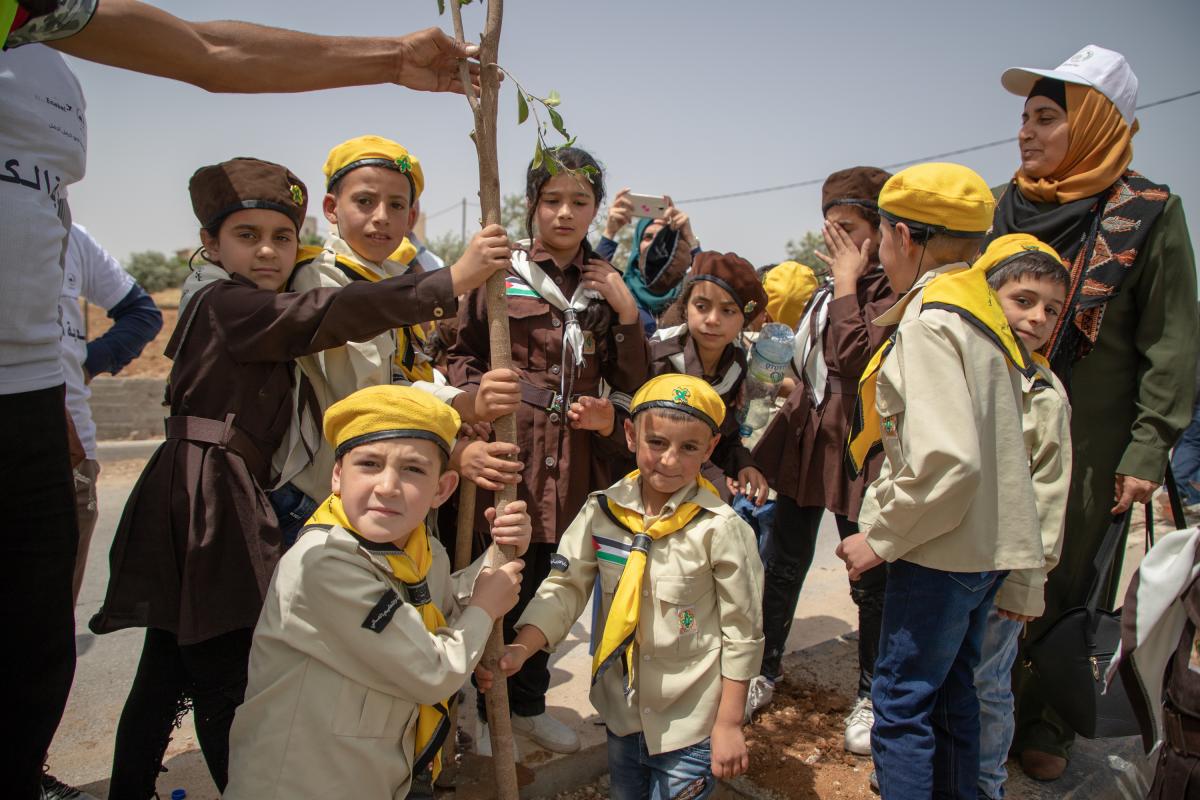
Planting trees during Al Karmil’s Environmental Week
Laura SCHILLEMANS | 03/05/2018
On Wednesday, the final event to celebrate the end of Al Karmil’s Environmental Week took place in the South Hebron Governorate. Students from 9 schools participated in the event, planting trees, cleaning schools, and attending awareness sessions on the environment and voluntary work. On the last day, Al Karmil school’s parents committee, youth club, women association, scout troop and volunteers planted trees in the main street of Al Karmil and at the mixed elementary school, together with mayor Tawfik Abu Malash, the Khalet Al Maya village council and the Palestine Red Crescent society. Environmental Week is an activity supported by Enabel (The Belgian Development Agency) as part of the local governance activities in the cluster.
-
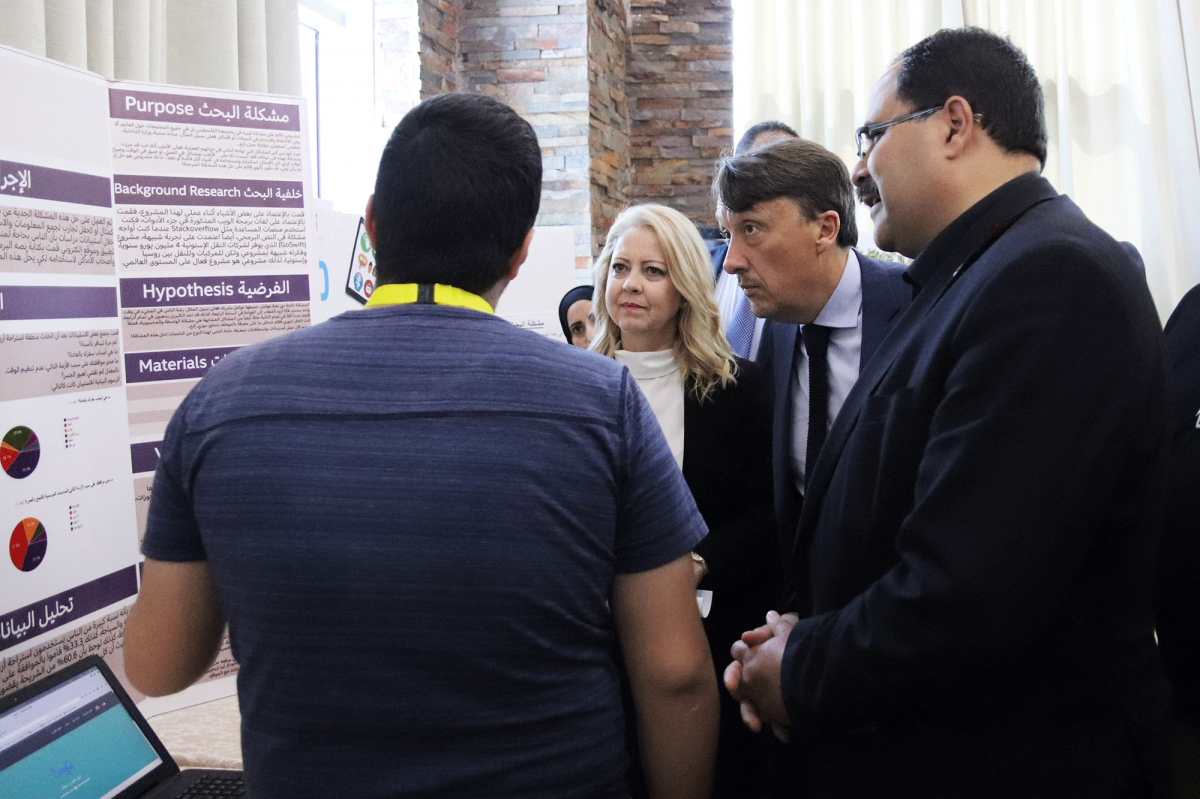
Celebrating young Palestinian mobile app developers
Laura SCHILLEMANS | 03/05/2018
Last Sunday we celebrated young Palestinian app developers during the Palestine Mobile App Fair. The fair was inaugurated by the Minister of Education and Higher Education, H.E. Dr. Sabri Saidam and attended by the advisor of the Prime Minister, Mrs. Khayrieh Risass, next to the Head of Development Cooperation at the Consulate General of Belgium, Mr. Eric De Muynck; representatives of the Joint Financing Arrangement (JFA), student, parents and teachers.Many students, teachers and judges worked hard to make the event succeed, by implementing scientific projects in schools, creating mobile applications for mobile devices and by contributing to the development of the creativity and the scientific research competencies of the students. H.E. Dr. Saidam stressed the necessity to adapt technology to serve human needs. He was pleased with the students' creations, which reflect the Palestinian quest for development and innovation, while praising the ministry’s achievements in many technological areas. Mr. De Muynck congratulated all the students and teachers on behalf of Belgium, Norway, Finland, Germany and Ireland, the partner countries of the Joint Financing Arrangement (JFA) who supported the event. He expressed his gratitude to be able to meet the bright Palestinian minds who developed great applications, noting that “nowadays there are no more barriers between digitalization, technology and education. For the younger generation it all comes naturally. They are the hope of the nation, showing that creativity overcomes boundaries”. He also mentioned Belgium’s long-standing cooperation with the Ministry in e-Learning and digitization. During a tour of the exhibition, showcasing 62 projects (of which 38 created by girls), the participants had the chance to present their work. Afterwards, the ceremony started to announce the winners of fair. First place went to Jenna, of the Madassa Secondary Girls school in Qalqilya. She created an app for children with autism. After she visited a center that works with children with autism, she saw the trainers sometimes had problems to get the children to concentrate. That’s when she came up with the idea to create an app that contains techniques to bring the kids’ concentration back with music and games. Other participants also focused on attending to the Palestinian society’s needs. Manar from Hebron created an app to connect car drivers and citizens in marginalized areas, where public transport is not frequently available, to minimize the time people need to wait in the street. Raghad Jamal Ali Hanoun from Tulkarem created an interactive educational app about the digestive system. Liin from Tulkarem also focused on the body by creating an app connected to a device that can be put on the spinal cord to monitor movements and indicate when you’re posture needs to be corrected. And finally, Basil from Jenin took 3 months to create a machine that brings drawings from your phone to life. The fair is a yearly event to showcase the brightest and most creative Palestinian minds in mobile app development.
-
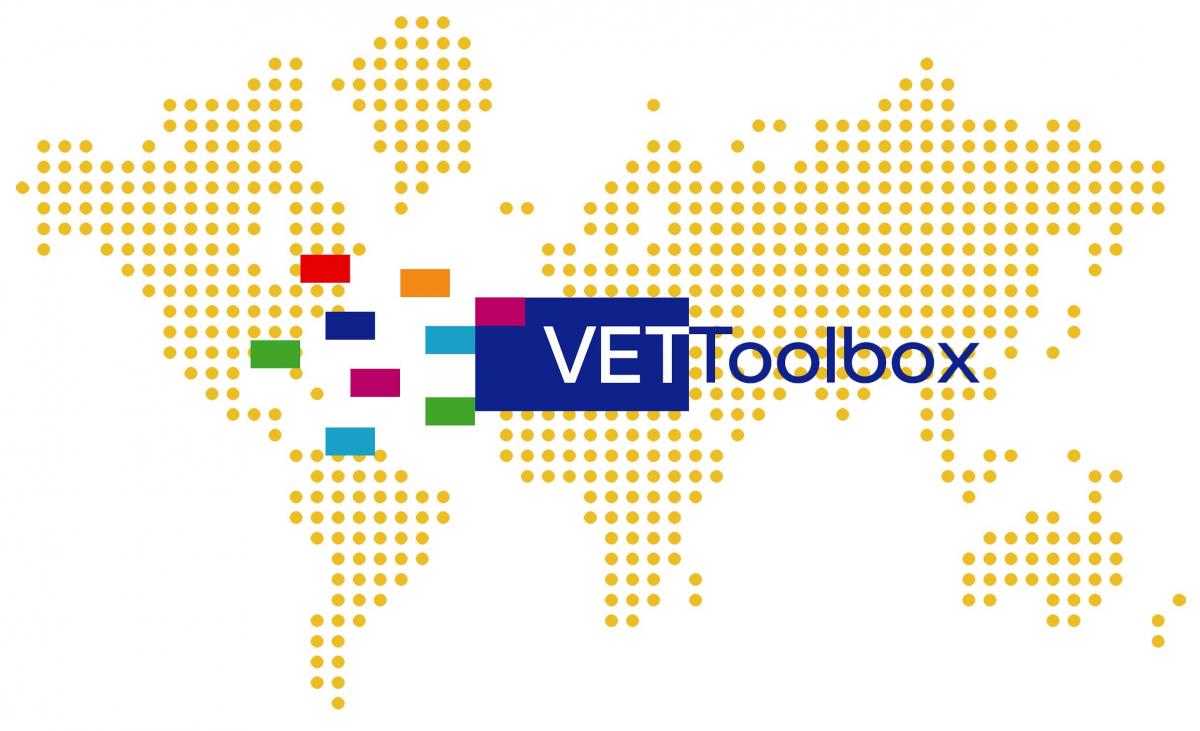
The VET Toolbox will start soon in
Thibaut MONNIER | 02/05/2018
PakistanThe VET Toolbox, through British Council, in partnership with the National Vocational & Technical Training Commission, will:Develop an apprenticeship handbookEngaging employers with regards to the Apprenticeship Act 2018 and in apprenticeship schemesCapacity building of TVET officials for effective implementation of apprenticeship lawsIncreasing Industry- Institute linkagesPartner institution: National Vocational & Technical Training CommissionGhanaThe VET Toolbox, through GIZ, in partnership with the National Board for Professional and Technician Examinations, will:Verify feasibility of different skills forecasting methodsBuild capacity in curricula update in consultation with private sectorIntroduce of CBET methodology in existing curricula, syllabi, and assessment and examination toolsUpdate of an engineering training programmeAdvice on introduction of modular programmesBotswanaThe VET Toolbox, through GIZ, in partnership with the EU delegation in Botswana, will:Provide a labour market analysis on tourism and livestockAdvice on approaches and mechanisms for overseeing, guiding and strengthening the TVET sub-sectorAdvice and guidance on mechanisms of consultation and participation of the private sectorContribute to the 11th EDF programme (private sector involvement and active participation in TVET)
-
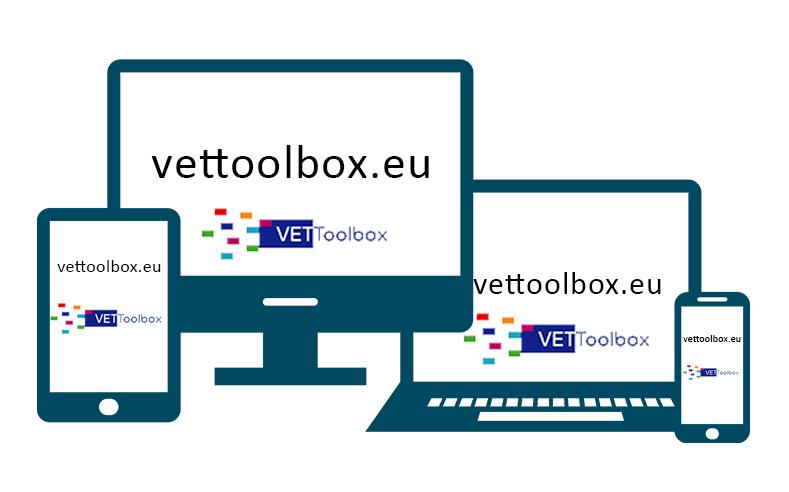
The VET Toolbox website is now online !
Thibaut MONNIER | 02/05/2018
Find all information about the VET Toolbox on www.vettoolbox.eu
-
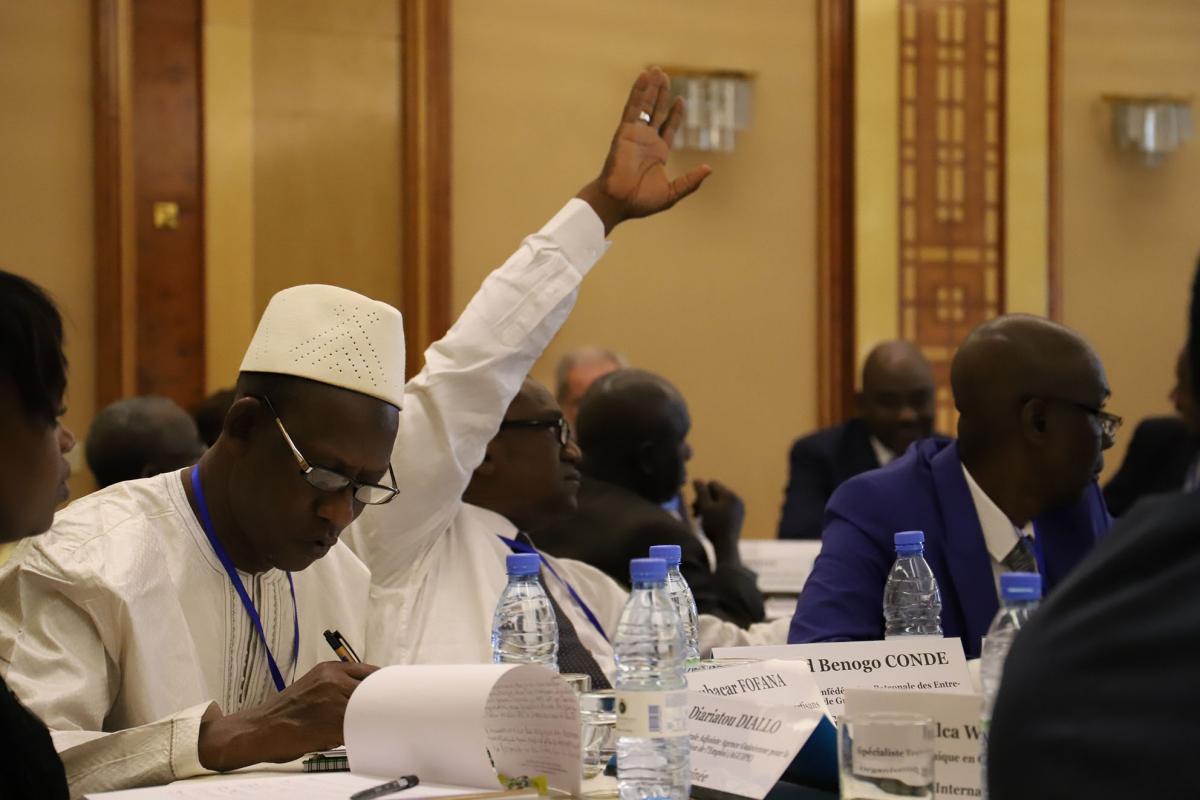
The VET Toolbox already started in Senegal
Thibaut MONNIER | 02/05/2018
From 13 to 17 November 2017, the VET Toolbox, through LuxDev, explored needs in terms of governance and management of training institutions and organized training for managers of training centres. During 5 days, participants worked to:Share good practices in the management of FPT centers in Brazil and SenegalDiagnose current governance and management needs of Senegalese FPT institutionsIdentify and define a strategy and support axes adapted to the Senegalese contextPropose an action plan and detailed accompanying activitiesExchange and analyze the possibility of establishing a lasting partnership between MFPAA and SENAI.Partner institution: Ministry of Vocational Training, Apprenticeship and Crafts.From 19 to 21 March 2018, the VET Toolbox, through LuxDev, participated in a regional seminar to exchange and strengthen public-private partnerships (PPP) in vocational education in Africa. During 3 days, participants worked to:enable key players in VET from 18 African countries to share their experiences to strengthen the quality and performance of the public-private partnership in their sectorstrengthen the dialogue between public and private sector actors stimulate the networking approach by sharing practical experiencesdeepen the practical and functional understanding of crucial aspects of PPP development through sessions focused on current sub-themes for African countries engaged in the renovation of their vocational training systemproduce a summary document.More than 100 participants from 18 African countries were involved.The regional seminar was a collaboration between LuxDev, PEFOP and IFEF.
-

VET Toolbox Launch. Brussels, 18.04.2018 - VIDEO
Thibaut MONNIER | 02/05/2018
EU member state agencies, VET experts and private sector representatives were present to discuss how to improve VET reforms to enhance employability for all. More information on vettoolbox.eu
-
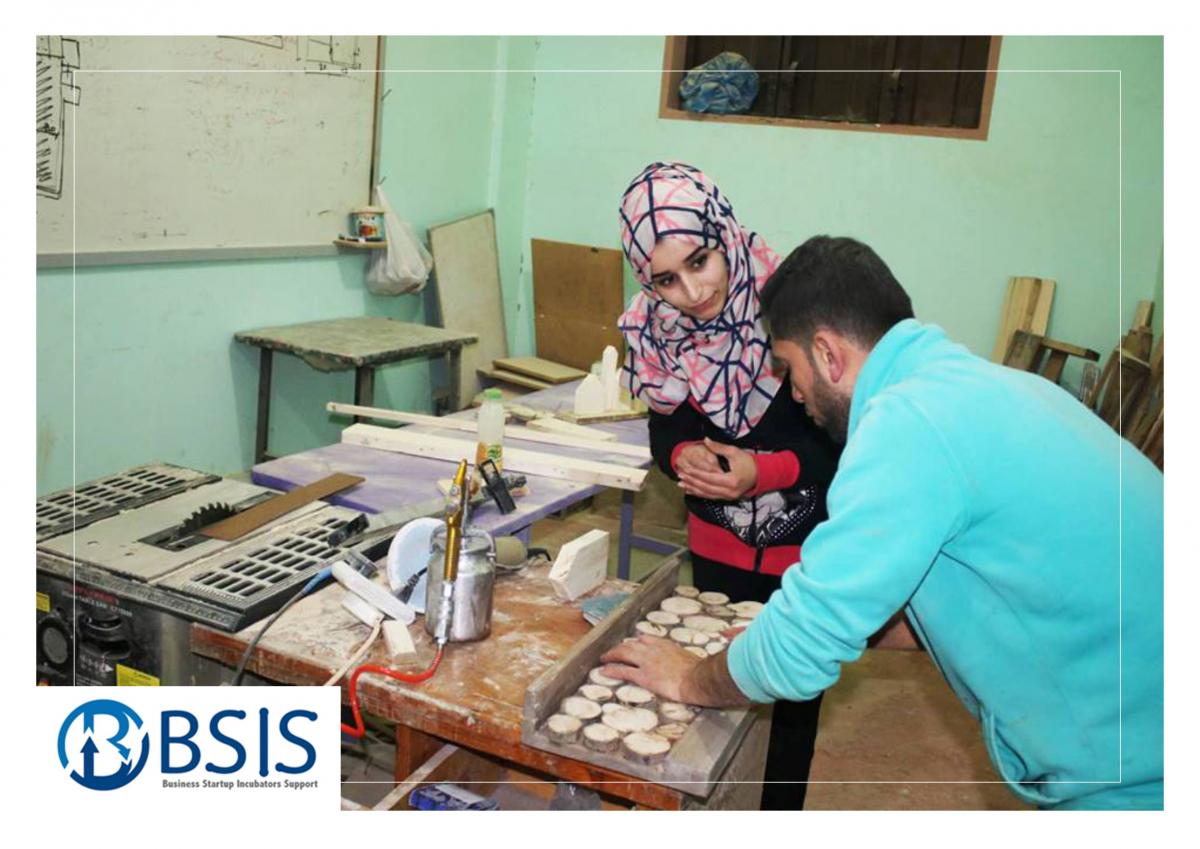
Success Story - Building Hopes and Saving Dreams: A Gazan Architect
Laura SCHILLEMANS | 02/05/2018
About Aya KishkoAya Kishko is a 26-year-old architect from Gaza, Palestine. She is the founder of ‘Basata Up’, a startup where pallets are turned into furniture and antiques. After graduating from the Faculty of Architecture at IUG in 2015, she worked as a lecturer there. When she first started working on her startup, she was incubated by IUG’s Business and Technology Incubator ‘BTI’. The BTI offered Aya counseling, mentorship, and assistance in setting business and marketing plans; and will be helping her startup become officially registered. “If it were not for the guidance BTI offered me, Basata Up would have been just a dream,” she said. After her work at IUG, she started working as a designer at a furniture factory, where she designed bedrooms, chairs, and made interior designs for famous restaurants and figures in the Gaza Strip. Although she lived far from the factory, she said she loved going and seeing people working and wanted to have something similar one day. The BeginningIt was the factory that made the idea of ‘Basata Up’ bloom into existence. She saw the great number of pallets that were thrown everywhere and saw potential. “I always dreamed about becoming a doctor to save the world. I did not become a doctor, but I still found a way to save people’s dreams,” she looked with eyes full of aspiration. To her, those pallets could be recycled and be used for making different furniture and house antiques. It was a simple idea (Basata) to upcycle (Up). The costs of wood used at the factory were high, which meant expensive furniture. Aya said that she saw how poor people felt whenever they heard the prices, and that it always broke her heart to see someone’s house of dreams fall apart because they could not afford to furnish it. That was her main motive. She felt that she could give something equally good, if not better, at much cheaper prices. No more dreams had to fall apart for the lack of money. It is worth noting that Aya always participates in different humanitarian activities such as visiting orphanages and nursing homes. She said that doing these things were as important to her as Basata Up was. AwardsIn 2016 BTI launched the Business Startup Incubator Support (BSIS) project, funded by the European Union and implemented by Belgian Development Agency (Enabel).The project aims to facilitate the creation of MSMEs in Palestine. It will enhance the entrepreneur's skills to make their start-ups more competitive and financially sustainable.It will also enhance the capacity of organizations providing support services to start-ups in the pre-incubation and incubation phases, develop the capacity of incubator managers and small business advisers and facilitate access to MSMEs to finance with the aim to increase the number of viable and sustainable start-up businesses.Aya was one of the entrepreneurs who submitted to join the project. Her project was one of 12 entrepreneurial ideas which got seed fund through collaboration between BSIS and the Islamic Relief – Palestine Office. She got about $3,000 grant, and she informed them she wanted a workshop, not an office, because her work required certain equipment and space. One year later, she participated in Gaza Innovation Challenge 2017 and although she participated for the same reason, she was awarded second place. Everyone commended her work and praised her innovative ideas. She also won a Facebook competition called ‘She Leads the Way’, with 5K likes. The last competition she participated in was ‘Taawon’, and she will receive the grants the beginning of April. What distinguishes Basata Up from other existing workshops in Gaza is that it is run by an architect. Others are workers who have one idea that they keep implementing. However, Aya’s workshop brings new designs based on carefully studied data such as the place, its size and the clients’ budgets. Also, her love for the environment made her go forward with this environmentally friendly project, which makes use of natural wood and creates something beautiful and creative. She says that she would be very happy if others followed her footsteps since her higher purpose is to help people and change lives. Challenges The most challenging obstacle for her was being a female engineer working as a manager of a workshop, being responsible for the workers, and carrying out business deals with other merchants and traders. Another obstacle was the fact that the equipment she has in the workshop is very conventional. She had hoped to receive extra funds from the BTI to buy new equipment that would make the work easier and more productive. She had to pay for the rent and the workers’ wages from her own savings. Also, she cannot offer health insurance and one of her workers was recently injured on duty. Sometimes she has to work at night until late hours due to electricity cuts. Her parents’ support and the excellent quality of her work helped her prove herself and made her overcome whatever obstacles she faced; “My designs speak louder than words”, she said and pointed out that she hopes to start her own production line, have tens of workers, and go internationally. Today Gaza, tomorrow the world.
-
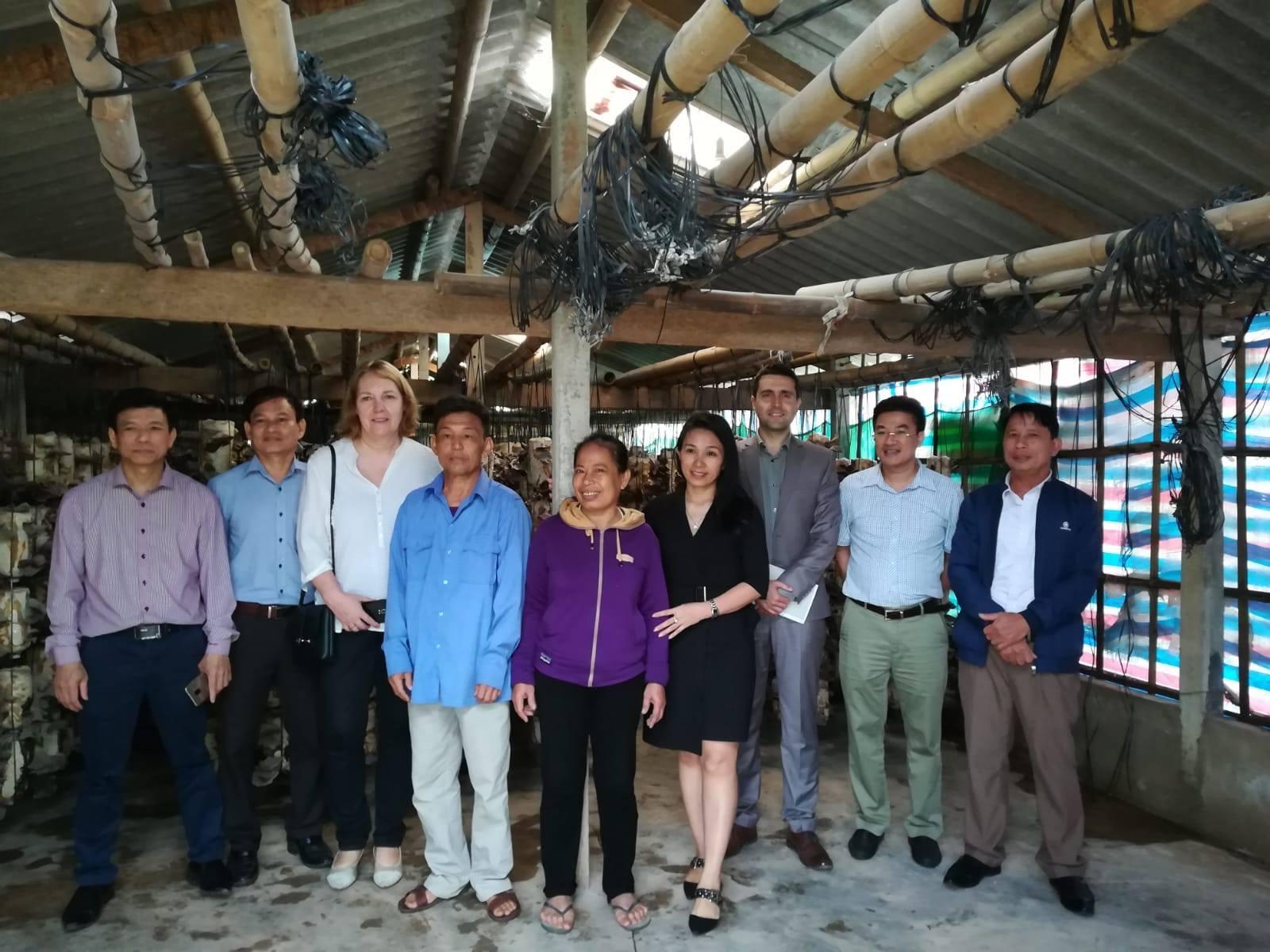
Sustainable Agriculture
Quan PHUNG VAN | 28/04/2018
On April 16th 2018, Ivo Hooghe, Development attaché of the Embassy has visited a project funded by Green Growth Strategy Facility (GGSF) and Enabel in Ha Tinh province on the “Application of science and technology to develop a model on mushroom growing and organic fertilizer production from agricultural wastes/byproducts.Ha Tinh is an agricultural province, therefore after harvesting annually, there’s a huge amount of agricultural waste products, especially straw, which is burned at the field by farmers, causing environmental pollution, soil degradation and waste of natural resources. With this GGSF and Enabel funded-project, straw and other agricultural wastes/byproducts are used to grow mushrooms, produce bio products and organic fertilizer for rice fields through composting method. This benefits not only the environment but also helps reduce costs for farmers.Resources: Facebook of Embassy of Belgium in Vietnam
-
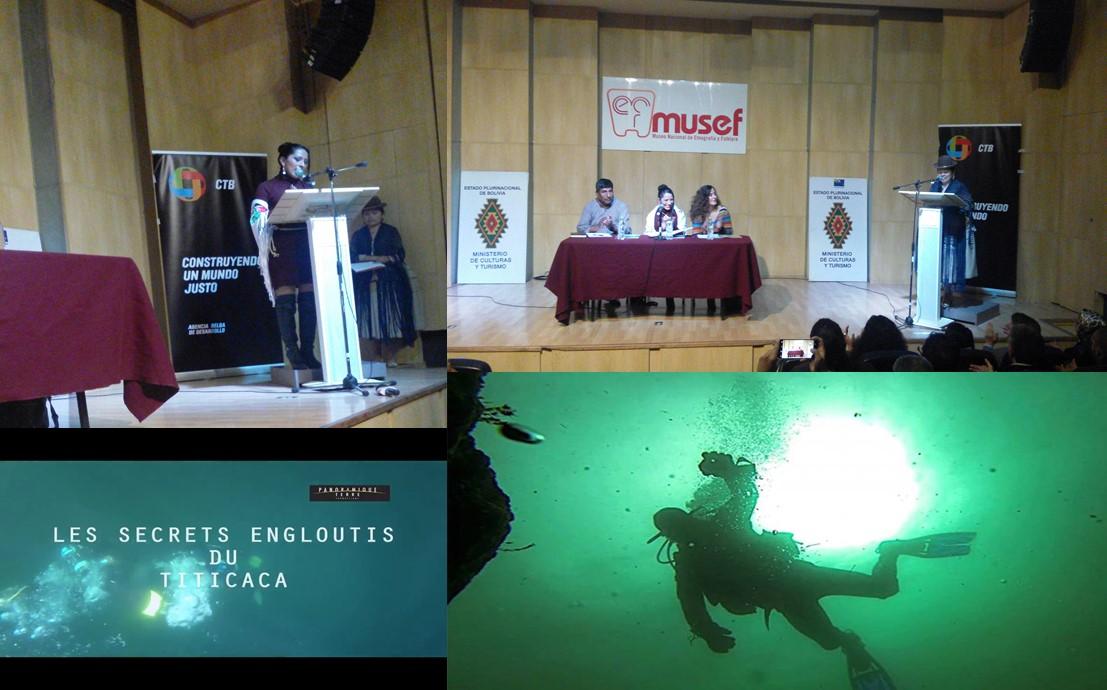
LA ARQUEOLOGÍA SUBACUÁTICA EN BOLIVIA A TRAVÉS DE UNA PELÍCULA DOCUMENTAL
Agar TAMAYO | 27/04/2018
La Paz. BOLIVIA. El día jueves 5 de abril de 2018, el Ministerio de Culturas y Turismo conjuntamente la Cooperación belga al desarrollo, presentaron en el Museo de Etnografía y Folklore - MUSEF el documental denominado: “Los Secretos Subacuáticos del Lago Titicaca”. Esta producción fue realizada por la empresa audiovisual “Panoramique Terre” durante las investigaciones doctorales del Arqueólogo belga, Christophe Delaere que se llevaron a cabo en Bolivia desde el año 2012 hasta el año 2015.El Proyecto de Identificación, Registro y Valorización del Patrimonio Cultural en la Cuenca del Lago Titicaca – Proyecto del lago, es una intervención financiada por el Reino de Bélgica y el Estado Plurinacional de Bolivia y co ejecutado por la Cooperación Técnica Belga junto con el Ministerio de Culturas y Turismo. La Ministra de Cultura y Turismo, Lic. Wilma Alanoca fue quien presentó el documental y agradeció a la cooperación belga por el apoyo brindado y los logros alcanzados a la fecha gracias a las actividades ejecutadas por el Proyecto del Lago. El evento contó con la participación de autoridades de Estado, representantes de la cooperación internacional, representantes de los municipios priorizados por el proyecto, sociedad civil, alumnos, docentes de la Universidad Mayor de San Andrés - UMSA, investigadores, entre otros interesados en conocer los secretos ocultos encontrados en el Lago Titicaca. Esta actividad contó con la presencia de más de quince medios de comunicación nacional e internacional, que realizaron varios reportajes, entrevistas y notas de prensa en torno al evento, el documental y las actividades del Proyecto del Lago. La Coordinadora del Proyecto y Asistente Técnico CTB del Proyecto del Lago, Cécile Roux mencionó en los medios: “Es un placer presentar el documental realizado en el 2014, cuando todavía se realizaban las investigaciones doctorales del Arqueólogo Christophe Delaere en el lago Titicaca,… la película muestra las técnicas de arqueología subacuática, así como los hallazgos de las campañas de excavaciones subacuáticas que fueron presentados en el año 2014 al Presidente del Estado Plurinacional de Bolivia y que se encuentran en el museo de Challa de la isla del Sol (Copacabana)…”. Después de esta presentación, el equipo del proyecto realizará una visita a los 13 municipios priorizados, en el que mostraran y socializaran este documental entre los pobladores y beneficiarios. La empresa audiovisual “Panoramique Terre” en la actualidad viene rodando la siguiente película que mostrará las actividades desarrolladas por el Proyecto del Lago, el mismo que será presentado a inicios del año 2019 así como 10 cápsulas en vídeo, con calidad cinematográfica con temáticas puntuales relacionados con : a) El turismo comunitario, b) el patrimonio arqueológico, c) la arqueología subacuática, d) el lago sagrado, entre otros con una producción de alta calidad que promoverá y reforzara la protección del patrimonio y la promoción del turismo de base comunitaria. El documental “Los Secretos Subacuáticos del Lago Titicaca” se encuentra disponible en el siguiente link: https://www.youtube.com/watch?v=sMNT7t1huug&t=1113sA continuación, presentamos las publicaciones relacionadas con la presentación del documental en los medios de comunicación nacionales e internacionales. MEDIOS IMPRESOS NACIONALES MEDIO DIRECCIÓN WEB FECHA La Razón (BOLIVIA/La Paz): “El primer museo subacuático del país será construido en el lago Titicaca” http://m.la-razon.com/la_revista/cultura/Gobierno-construira-primer-subacuatico-Titicaca_0_2903109694.html 02/04/2018 La Razón (BOLIVIA): “Exploración subacuática en el Lago Titicaca” http://www.la-razon.com/la_revista/Exploracion-subacuatica-Lago-Titicaca_5_2904959477.html 05/04/2018 Cambio (BOLIVIA/La Paz): “MUSEO SUBACUÁTICO RECUPERARÁ LA RIQUEZA ANCESTRAL DEL TITICACA” http://www.cambio.bo/?q=node/42903 05/04/2018 El Diario (BOLIVIA/La Paz): “Unesco alista diseño final de museo subacuático en Titicaca” http://www.eldiario.net/noticias/2018/2018_04/nt180406/cultural.php?n=12&-unesco-alista-disenio-final-de-museo-subacuatico-en-titicaca 06/04/2018 La Razón (BOLIVIA/La Paz): “Cooperación Belga entregará diseño final del museo subacuático del Titicaca en julio” http://m.la-razon.com/la_revista/cultura/Museo_subacuatico-Cooperacion-Belga-entrega-diseno-final-Titicaca-julio-Culturas-CTB-Belga_0_2904909528.html 05/04/2018 Los Tiempos (Bolivia/Cochabamaba): “Museo subacuático en el lago Titicaca será respaldado por Unesco” http://www.lostiempos.com/doble-click/cultura/20180405/museo-subacuatico-lago-titicaca-sera-respaldado-unesco 05/04/2018 MEDIOS IMPRESOS INTERNACIONALES MEDIO DIRECCIÓN WEB FECHA El Comercio (PERÚ): “Bolivia creará el primer museo subacuático en el lago Titicaca” https://elcomercio.pe/mundo/latinoamerica/bolivia-creara-primer-museo-subacuatico-lago-titicaca-noticia-509039 02/04/2018 Clarín (ARGENTINA): “Harán un museo subacuático en el Lago Titicaca” https://www.clarin.com/viajes/haran-museo-subacuatico-lago-titicaca_0_rkcxoXWsf.html 06/04/2018 PERIÓDICOS DIGITALES MEDIO DIRECCIÓN WEB FECHA Ministerio de Culturas: “MINISTERIO DE CULTURAS CONCRETARÁ MUSEO SUBACUÁTICO DEL LAGO TITICACA” http://www.minculturas.gob.bo/es/articulo/300-ministerio-de-culturas-concretar-museo-subacutico-del-lago-titicaca 02/04/2018 Prensa Latina (EEUU): “Presentan en Bolivia documental sobre hallazgos en el Titicaca” http://www.prensa-latina.cu/index.php?o=rn&id=165990&SEO=presentan-en-bolivia-documental-sobre-hallazgos-en-el-titicaca 05/04/2018 Kandire: “Ministerio de Culturas alista proyecto para construir museo subacuático en el Lago Titicaca” https://kandire.bo/12158-Ministerio-de-Culturas-alista-proyecto-para-construir-museo-subacuatico-en-el-Lago-Titicaca.html 05/04/2018 LEA ONLINE (Periódico leído en Argentina, Bolivia y Chile): “El proyecto del primer museo subacuático de Bolivia será respaldado por la Unesco” http://www.periodicolea.com.ar/2018/04/06/el-proyecto-del-primer-museo-subacuatico-de-bolivia-sera-respaldado-por-la-unesco/ 06/04/2018 URGENTE.BO: “En julio se conocerá el diseño del Museo Subacuático del lago Titicaca” https://www.urgentebo.com/noticia/en-julio-se-conocer%C3%A1-el-dise%C3%B1o-del-museo-subacu%C3%A1tico-del-lago-titicaca 05/04/2018 Bolivia.com: “Bolivia crea el primer museo subacuático en el lago Titicaca” http://www.bolivia.com/turismo/noticias/bolivia-crea-el-primer-museo-subacuatico-en-el-lago-titicaca-185959 06/04/2018 RTP Periódico Digital http://www.rtpbolivia.com.bo/2018/04/05/presentan-documental-sobre-secretos-subacuaticos-del-lago-titicaca/ 05/04/2018 EN MEDIOS TELEVISIVOS NACIONALES MEDIO DIRECCIÓN WEB FECHA BTB Bolivia TV: “Bolivia Implementarán un Museo Subacuático en el Lago Titicaca” https://www.youtube.com/watch?v=mLH69yyS_UU&feature=youtu.be 05/04/2018 ATB TV: “Construirán museo subacuático en el lago Titicaca” https://www.youtube.com/watch?v=38E6pQpkBMQ&feature=youtu.be 05/04/2018 RTP: “Presentan video “Los Secretos del Lago Titicaca” y anuncian la construcción de un museo subacuático” https://www.youtube.com/watch?v=oyRiunYeI3U&t=2s 06/04/2018 RTP: “Ministerio de Culturas Presenta Video Los Secretos del Lago Titicaca” https://www.youtube.com/watch?v=lgojG_sXxK8 06/04/2018 EN MEDIOS TELEVISIVOS INTERNACIONALES MEDIO DIRECCIÓN WEB FECHA Telesur: “Bolivia busca construir un museo subacuático en el lago Titicaca” https://www.youtube.com/watch?v=zUk4UN14bmA&feature=youtu.be 03/04/2018 Telesur: “Bolivia construirá un museo subacuático en el Lago Titicaca” https://www.youtube.com/watch?v=6AhmAPhlTLc&feature=youtu.be 04/04/2018 EN CANALES WEB MEDIO DIRECCIÓN WEB FECHA VEO AMÉRICA: “Arqueología Subacuática en el Lago Titicaca – (Entrevista)” http://america.veoinfo.com/arqueologia-subacuatica-en-el-lago-titicaca-entrevista/ 06/04/2018 Chitro Alanoca: “Gobierno boliviano y belga revalorizan patrimonio cultural del Lago Titicaca” https://www.youtube.com/watch?v=5bJLYhu_L0s&feature=youtu.be 05/04/2018 Noticias de Bolivia: “Bolivia Implementarán un Museo Subacuático en el Lago Titicaca” https://www.youtube.com/watch?v=mLH69yyS_UU&t=6s 05/04/2018 PMX Bolivia: “Presentación del documental "Los secretos subacuáticos del Titicaca en el MUSEF de La Paz” https://www.youtube.com/watch?v=2p-E7sCpxQs&t=2s 06/04/2018
-
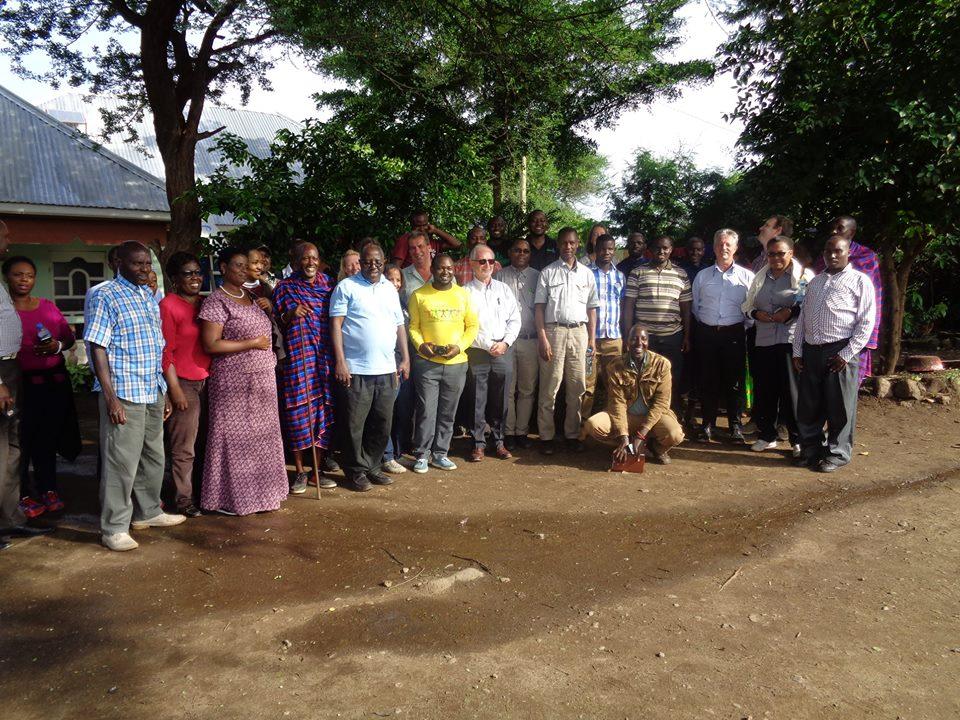
Visit of the Belgian Embassador
Mathias LARDINOIS | 25/04/2018
Visit of Belgian Ambassador Paul Cartier, Enabel Resident Representative Tom Smis, and WFP TZ deputy Director Wendy Bigham on 18 April to the Maisha Bora Food Security Programme in Tanzania.
